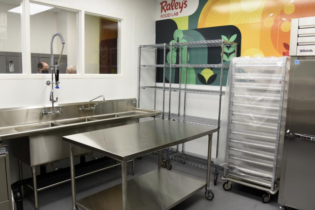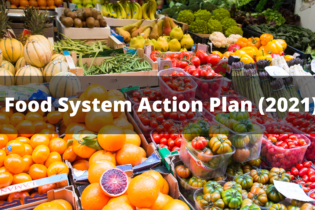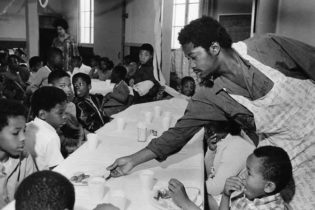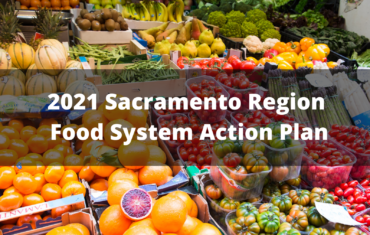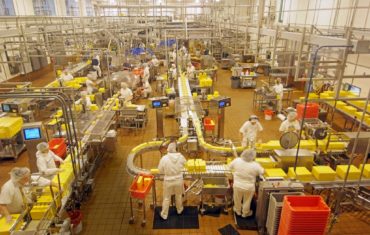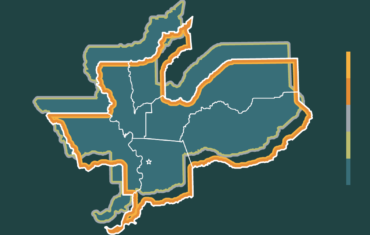Recap: Challenges and Opportunities in Our Region’s Food System
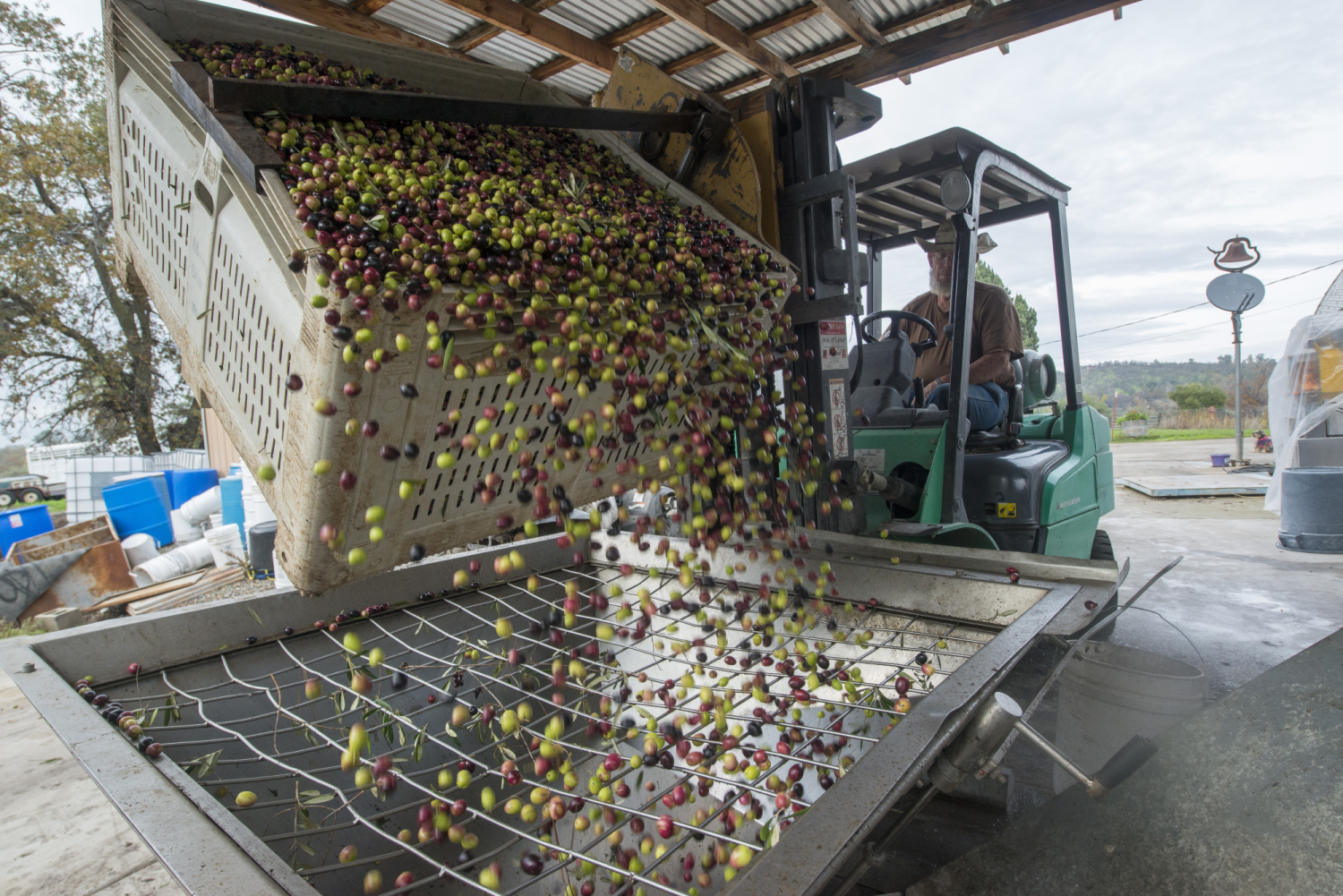
Valley Vision is proud to be researching and working alongside partners to support investment in the region’s food system.
Last month, as part of the 2021 Food System Action Plan update, Valley Vision hosted a series of Listening Sessions in topical areas as an opportunity to identify funding, capacity, and resource needs in the region’s Food System. We were joined by almost 200 participants who shared their expertise in workforce development and career pathways; viability of agriculture and land preservation; environmental sustainability and climate change; health and nutrition education; healthy food access and food security; and food economy and local market development.
Supported by the Sacramento Region Community Foundation, the 2021 Food System Action Plan (FSAP) is a regional food system investment strategy that will identify best practices, priorities, prevailing challenges, opportunities, and funding recommendations related to the region’s food system for the communities of El Dorado, Placer, Sacramento, and Yolo Counties. The goal is to increase the vitality of the region’s food system and to identify financing strategies and mechanisms to support a more equitable, health-promoting and accessible food system for all residents of the Greater Sacramento Region. The report will be released this Fall, and excitingly, for the first time, the report will be paired with a Food System Resilience Poll, in partnership with the Sacramento State Institute for Social Research (ISR) and Capital Public Radio. The poll covers similar topics related to the food system and will inform the Food System Action Plan. Both of these reports are slated to be released in Fall 2021.
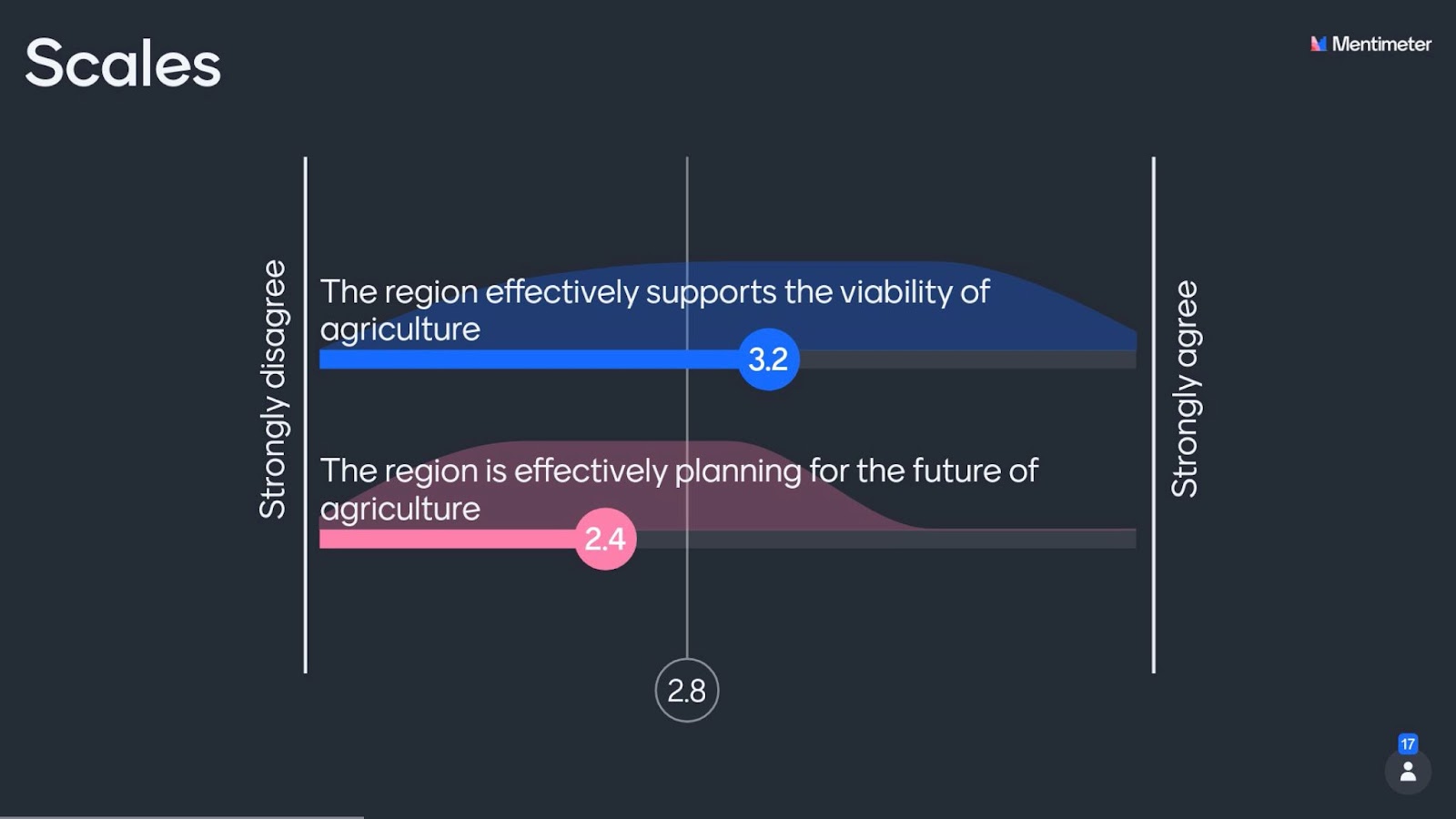
If you weren’t able to attend the listening sessions, below is a brief summary of each session:
- Session #1: The participants in the Careers in Food and Agriculture session discussed the manufacturing, processing, and distribution networks of the food system, illustrating the diversity of farm operations in the region. Although the session reminded us that the region has many successful Career Technical Education (CTE) programs in food and agriculture-which prepare high school students for college – challenges remain in sustaining, building, and retaining a local workforce, including the next generation of farmers and food producers. Lack of awareness of workforce opportunities and less than positive image were also challenges.
- Session #2: Land, capital and broadband access, agriculture technology, local markets, and land preservation were constant themes in the Viability of Agriculture session. Despite land conversion being a threat to agriculture’s viability, our region is doing better than others in the state; however, access to land to start a farm or a community garden remains a challenge. Workforce is another challenge.
- Session #3: During the Environmental Sustainability session, participants discussed local food production, food waste, edible food recovery, and the impacts climate change has had (and will have) on the food system, as is manifesting now. Although food hubs were discussed in some fashion in every session, in this session they were discussed extensively as a mechanism to reduce greenhouse gas emissions associated with transportation of produce and international trade and to provide additional capacity for packaging, processing and distribution of local produce for local consumption.
- Session #4: The Healthy Food Access and Food Security session showcased the strong network of nonprofits in the region, especially those in the emergency food system, who work to provide access to fresh, local, and nutritious food to under-resourced communities. In spite of the increased impact on this sector due to the pandemic, participants shared that consistent and expanded funding for infrastructure, organizational capacity and growth to manage the increased levels of clients and food remains a challenge.
- Session #5: In the Health and Nutrition session, the importance of family-based nutrition education and supply chain awareness was emphasized. A number of participants mentioned that most people are not aware of the correlation between food, health, and eating habits, and that robust educational support is needed to help promote healthy eating and nutrition literacy.
- Session #6: The Food Economy session focused on institutional purchases, entrepreneurship support, and local procurement partnerships. There are a significant number of small farmers in the region, but corporate producers can produce food for a lower price, making local food procurement and local economic development challenging. There are innovative efforts through schools and hospitals that can be models for increased local procurement and purchasing partnerships, support local producers and keep more dollars local.
The listening sessions revealed what most of us already know: As America’s Farm-to-Fork Capital, we have a lot of work to do but we have the infrastructure and the strong networks to do it. If we are organized as a region, we can better promote, support, and partner with one another to bring additional funding to the region. We look forward to sharing additional challenges, opportunities, and funding recommendations in the Fall when we release the 2021 Food System Action Plan.
The full recordings and presentation slides are available on Valley Vision’s website. If you weren’t able to attend the sessions and would like to provide comments for the FSAP, we have created a survey to gather additional input. Please reach out to Grace Kaufman (Grace.Kaufman@valleyvision.org) should you have any questions.
To keep up with Valley Vision’s work to advance livability in the Sacramento region, subscribe to our monthly Food and Ag newsletter!
Grace Kaufman is a Valley Vision Project Manager working in the Food and Ag and Clean Economy impact areas
